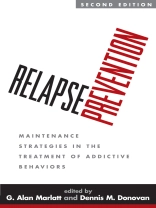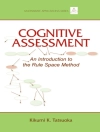This important work elucidates why relapse is so common for people recovering from addictive behavior problems–and what can be done to keep treatment on track. It provides an empirically supported framework for helping people with addictive behavior problems develop the skills to maintain their treatment goals, even in high-risk situations, and deal effectively with setbacks that occur. The expert contributors clearly identify the obstacles that arise in treating specific problem behaviors, review the factors that may trigger relapse at different stages of recovery, and present procedures for teaching effective cognitive and behavioral coping strategies.
विषयसूची
1. Relapse Prevention for Alcohol and Drug Problems, G. Alan Marlatt and Katie Witkiewitz
2. Relapse Prevention among Diverse Populations, Arthur W. Blume and Berenice García de la Cruz
3. Treating Alcohol Problems, Ronald M. Kadden and Ned L. Cooney
4. Relapse Prevention for Smoking, Saul Shiffman, Jon Kassel, Chad Gwaltney, and Dennis Mc Chargue
5. Relapse Prevention for Stimulant Dependence, Kathleen M. Carroll and Richard A. Rawson
6. Relapse Prevention for Opioid Dependence, Nancy A. Haug, James L. Sorensen, Valerie A. Gruber, and Yong S. Song
7. Relapse Prevention for Cannabis Abuse and Dependence, Roger A. Roffman and Robert S. Stephens
8. Relapse Prevention for Abuse of Club Drugs, Hallucinogens, Inhalants, and Steroids, Jason R. Kilmer, Jessica M. Cronce, and Rebekka S. Palmer
9. Relapse Prevention for Eating Disorders and Obesity, R. Lorraine Collins
10. Treatment of Gambling Disorders, Howard J. Shaffer and Debi A. La Plante
11. Enhancing the Relapse Prevention Model for Sex Offenders: Adding Recidivism Risk Reduction Therapy to Target Offenders’ Dynamic Risk Needs, Jennifer G. Wheeler, William H. George, and Susan A. Stoner
12. Relapse Prevention for Sexually Risky Behaviors, Tina M. Zawacki, Susan A. Stoner, and William H. George












